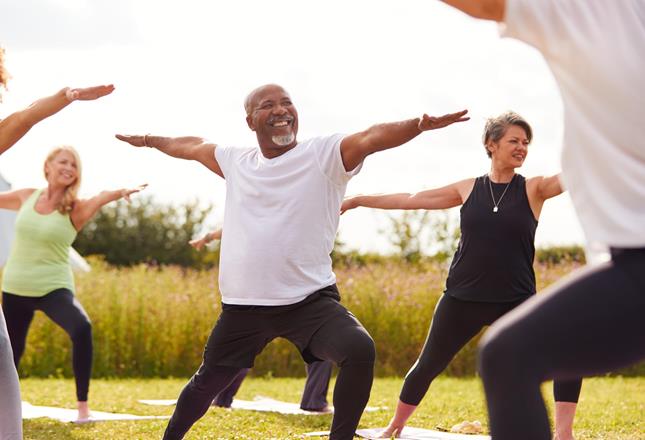
The Active Lives Adults Survey reveals that 710,000 fewer adults met the Chief Medical Officer’s guidelines of taking part in 150 minutes of moderate intensity physical activity a week, while there was an increase of 1.2 million adults classed as inactive - taking part in less than an average of 30 minutes a week.
With lockdown restrictions severely reducing activity options, there were big increases in running, cycling and walking. However, team sports and gym activity witnessed large drops in numbers due to social restrictions.
The report also highlights the widening of inequalities among different demographics with women, young people aged 16-24, over 75s, disabled people and people with long-term health conditions, and those from Black, Asian, and other minority ethnic backgrounds most adversely impacted.
Responding to the latest figures Lisa Wainwright, Sport and Recreation Alliance CEO, said: “It is unsurprising to see a decline in the number of active adults in the backdrop of the COVID-19 pandemic, however it is pleasing to see how small a drop this was.
“This in large part is down to the phenomenal work of the sector and our members in adapting to an ever-changing situation and continuing to deliver to their audience in more imaginative and accessible ways.
“The resilience demonstrated has been an inspiration and should be built upon as we ease out of current restrictions.
“It is important that we do not lose momentum in our recovery and that when restrictions allow, we have the facilities and workforce in place to welcome back millions of participants to organised activity.
“Many challenges remain and there are clear signs that inequalities in activity levels stubbornly persist and the pandemic has only increased the gaps in certain demographics.
“That is why our new strategy Support. Recover. Achieve. puts people and communities at its heart. To create a more active nation we must provide the opportunities for everyone to benefit from the incredible power of sport and recreation.
“We look forward to working with Sport England, government and partners in the sector to eradicate these inequalities and put sport and recreation at the heart of the nation’s recovery as we increase activity from pre-pandemic levels.”
The Sport and Recreation Alliance is delighted to confirm former Rugby Football League (RFL) CEO, Ralph Rimmer OBE, as the Chair and Jack Baker as Deputy Chair of the new NGB Coalition.
Read moreIt is with immense sadness that the Sport and Recreation Alliance learned of Andy Sutch’s passing last week, and we send our deepest condolences to Andy’s family and friends.
Read moreThis afternoon, the Chancellor delivered her Budget speech to Parliament, outlining decisions on tax and spending.
Read moreJoining the Sport and Recreation Alliance is pretty simple, but worthwhile!
Register now